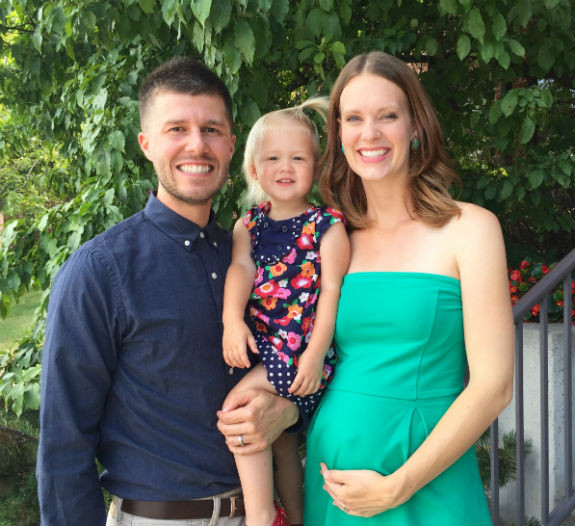Putting Down Roots
Planting a church family in a rootless city

When you combine many different kinds of people in a small space, things get complicated. That’s why I love cities.
I fell in love with San Francisco by accident. I was planning to plant a church across the Bay in Berkeley when God closed all those doors and opened up opportunities in San Francisco instead. My family moved here in September 2013—my wife and I and our 2-month-old daughter.
The first thing I did was research the city’s demographics, history and spiritual climate. I basically dated San Francisco for the first six months. You know how dating goes: You begin to feel comfortable and then suddenly you feel insecure; you begin to see the beauty and you begin to see the ugly.
I learned that the modern history of San Francisco started at the Gold Rush. In 1848 there were about 1,000 residents. One year later, there were 25,000 residents.1 The prospect of striking it rich had brought a flood of treasure-seekers, criminals, swindlers and entrepreneurs. San Francisco became a haven for lawlessness, prostitution and gambling.2
The city’s population explosion continued over the next 50 years as the city grew to be a major shipping port, banking center, and military outpost. The shape of the city’s neighborhoods was radically changed after the 1906 earthquake and fire destroyed three-quarters of the city.3 And then another 50 years later the Beat Generation and Hippies gave San Francisco a new political and sexual ethic.
Fast forward to today: One-third of the residents of San Francisco are born outside the United States.4 And a handful of faithful pastors and churches have been here for generations, many of them ministering to these ethnic minorities. Still, almost 65 percent of residents claim no religion,5 making it the most post-Christian city in the country.6 This incredible history, diversity and irreligion shapes the city in which I minister.
Discovering the city for myself
Next I began to observe people. I would ride the bus into different neighborhoods, working for a few hours in various coffee shops. I would tell people that I’m new in the city and ask for their favorite things to do and their favorite places to eat. I got invited over to my neighbors’ house and learned about their family, their values and their perspective on spirituality.

I saw people who were very busy, very wealthy and endlessly entertained. I also saw people who were desperately poor, hopelessly hungry, and trapped by drug and alcohol addiction.
I saw dozens of cultures piled on top of each other, and my heart started to break for actual people.
I came to see that few people in San Francisco have local roots. They move here from all over the world for jobs, education or cultural experiences. Some have rejected their upbringing and their families because of an alternative lifestyle or conflict.
San Franciscans need to see how they are part of a bigger story. They need to grasp the reality of a loving Heavenly Father. They need to be loved by brothers and sisters. I came to see that a gospel message that invites people to be adopted into the family of God has the potential to be incredibly redemptive here.
I began to catch a vision for a church-planting ministry that would fit such a complicated city.
Family church
With this in mind, I started praying. In about a week’s time in July 2014, God assembled a dozen of us with a common goal: to figure out church in our urban context. Knowing that San Francisco has distinct neighborhood identities, that it is the second most walkable large city in the United States after New York,7 and that people need to see the gospel come to life in a family setting, we set out with a vision for doing church around a dinner table.

We started to call ourselves a “family of missionaries who make disciples.” We envision a new gospel-centered church in every neighborhood of San Francisco, within walking distance of every resident of the city.
We meet in a home. We eat dinner together, pray, sing and study Scripture around the dinner table. We hear each other’s struggles, celebrate together and push each other toward Jesus. We are calling it “family church” because we aren’t defined by the location as much as by the type of relationships we have in God’s family. This is an experiment in contextualizing the gospel to our city.
With 20 people in our weekly gathering in Pacific Heights, we are praying for others to come to faith, for leaders to be raised up and for open doors in new neighborhoods. We recently blessed two members to go start an evangelistic Bible study with a long-standing group of unbelieving friends in their neighborhood.
Encouragement amid darkness
Over the last year I have wanted to give up dozens of times. I feel discouraged frequently. I feel inadequate all the time. Like every single church planter, I am learning how much I don’t know.
And my family is sacrificing as well. My daughter sleeps in a closet that we turned into a bedroom. My wife is a working mom who is struggling to envision raising a family in such a complicated city. One week we feel encouraged, the next week we feel the pressure of the city and the darkness all around us.
The city has taught me to pray. What else can I do with such a mix of physical and spiritual poverty? It drives me to Jesus. It drives me to the gospel. It heightens my awareness of God’s love for His lost sheep here.
I fell in love with San Francisco, and from that love grows my desire to see the people of this city join God’s family.
Send a Response
Share your thoughts with the author.